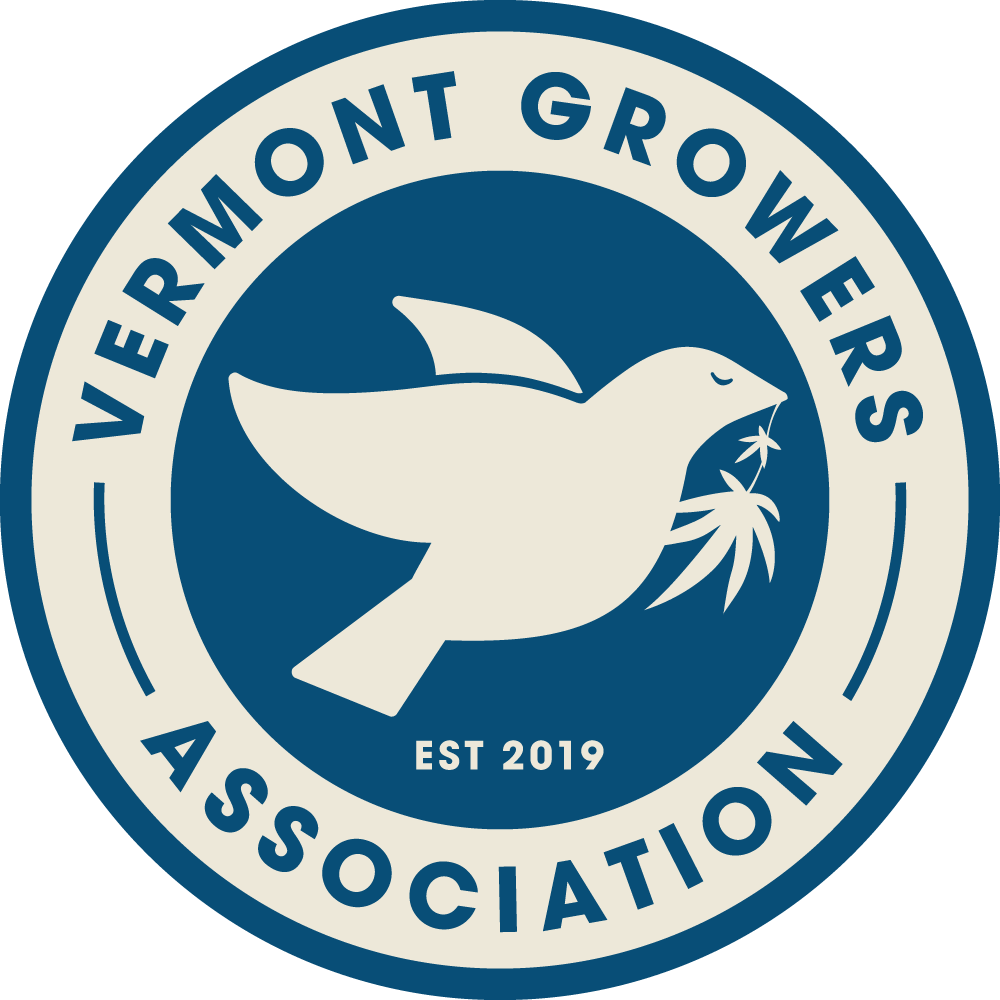Vermont’s Cannabis Market Is Unprofitable for Small Producers
Dear State Legislators and the Cannabis Control Board,
We’re writing an open letter as the Cultivator Working Group of Vermont Growers Association, a committee of locally-licensed cannabis growers of different types and production sizes to advance the mission of VGA to establish a just, prosperous, and competitive market, to raise an urgent alarm that the regulated cannabis market has become an untenable business ecosystem for producers due to unfair laws, the situation is damaging the market, and that reasonable reform to address these flaws requires your support.
“This bottleneck in the supply chain negatively impacts producers’ ability to distribute their products. As a result, producers are exiting the market at a disproportionately higher rate than other license types, and the market is increasingly failing to meet consumer demand, posing a significant threat to the market’s future. As Chris Lillie of Green Mountain Sativa frames it, ‘it creates a bottleneck for cultivators, stifling my growth; I need access to the market to survive.’”
A crisis is unfolding in Vermont’s cannabis market, caused by its obsolete retail-centric market model that exists in the law. As Beau Whitney, a leading cannabis economist, broadly defines it, “The result is a system where licensed businesses struggle to survive while the illicit market continues to thrive. One glaring example of this regulatory mismatch is the retail-centric model.”
Vermont’s outdated retail-centric market design has created a shortage of available shelf space. This bottleneck in the supply chain negatively impacts producers’ ability to distribute their products. As a result, producers are exiting the market at a disproportionately higher rate than other license types, and the market is increasingly failing to meet consumer demand, posing a significant threat to the market's future. As Chris Lillie of Green Mountain Sativa frames it, “it creates a bottleneck for cultivators, stifling my growth; I need access to the market to survive.” The original intent of Vermont’s cannabis law, Act 164 (2020), is to transition local small illicit producers equitably. However, if we maintain the current course, we will continue to move in the opposite direction.
Vermont has a rich agricultural history, with dairy farms and maple syrup leading the way. Despite cannabis not being considered agriculture by law, the regulated market has created approximately 1,600 jobs and generated over $20 million in annual State revenue. However, that prosperity is not fairly distributed among small producers, who are responsible for bringing products to market and striving to keep their businesses financially viable. “The State has made tens of millions of dollars from the cannabis industry,” said Myra Adams, of Hidden Leaf Homestead, “I’ve been licensed for 3 years and still can’t pay myself.”
Since Vermont began issuing licenses for the market in 2022, 161 cultivators have relinquished their licenses, according to the Cannabis Control Board, with market access and profitability being the leading reasons for exiting the market. “In the very immediate future, I predict my business will not be sustainable with wholesale sales alone.” Says Ben Wilcox, of Off Piste Farm, “Direct sales to consumers of a small percentage of my crop will have to be a key component of my revenue calculus.” As evidenced by other state markets with a similar outdated retail-centric model, without changes in law, the Vermont market will deteriorate. “Vermont growers cannot survive on wholesale alone.” Says Troy Griffith, of Florist VT.
Allowing family farms and small agricultural producers to sell their products directly to the public in a fair and well-regulated manner is a concept long familiar to Vermonters and State legislators. These products are often sold directly to consumers through Community Supported Agriculture (CSA) programs, farm stands, farm-to-table restaurants, and local stores that prioritize locally grown foods over mass-produced items from factory farms. When it comes to cannabis, Ethan Kramer, of Tilia Hills, says, “We look forward to simple and common-sense solutions to the problems faced by our industry.” “I’m hopeful the next legislative session will provide an opportunity to get direct-to-consumer sales,” says Sara Farnsworth, of Full Circle Farm, “which would be a much-needed lifeline for my small business.”
Vermont legislators have a well-established and nationally recognized track record of being courageous and not allowing lack of precedent to drive policy development, such as being the first state to recognize same-sex civil unions in 2000 and marriage in 2009, and being the first state to mandate GMO labeling of foods in 2016. Vermont lawmakers act in the interest of their constituents, and the cannabis sector should be no different. “While retailers have been largely successful since the recreational market began, Vermont growers cannot sustain solely on wholesale sales.” Explains Nick Mattei, of Forbins Finest, “Other states have demonstrated that farmers’ markets and similar not only benefit license holders but also attract consumers. Policymakers should take action to expand market channels that are hugely beneficial to licensees and consumers.”
In closing, we urge the Cannabis Control Board to hear and act on the prevailing voices within the industry. We call on the Governor, Lieutenant Governor, and lawmakers in the State House to ensure that next year’s legislative session addresses the urgent need for foundational reforms to prevent the regulated market from advancing further into decline. Reasonable reforms are necessary to alleviate the obsolete retail-centric market model and support the hundreds of licensed farms and businesses participating in the market, thereby fulfilling the original intent of Vermont’s cannabis law while preserving the unique value and characteristics that distinguish the market from other state markets.
Sincerely,
Myra Adams, Hidden Leaf Homestead
Sara Farnworth, Full Circle Farm
Troy Griffith, VT Florist
Ethan Kramer, Tilia Hills
Chris Lillie, Green Mountain Sativa
Nick Mattei, Forbins Reserve and Forbins Finest
Ben Wilcox, Off Piste Farm
